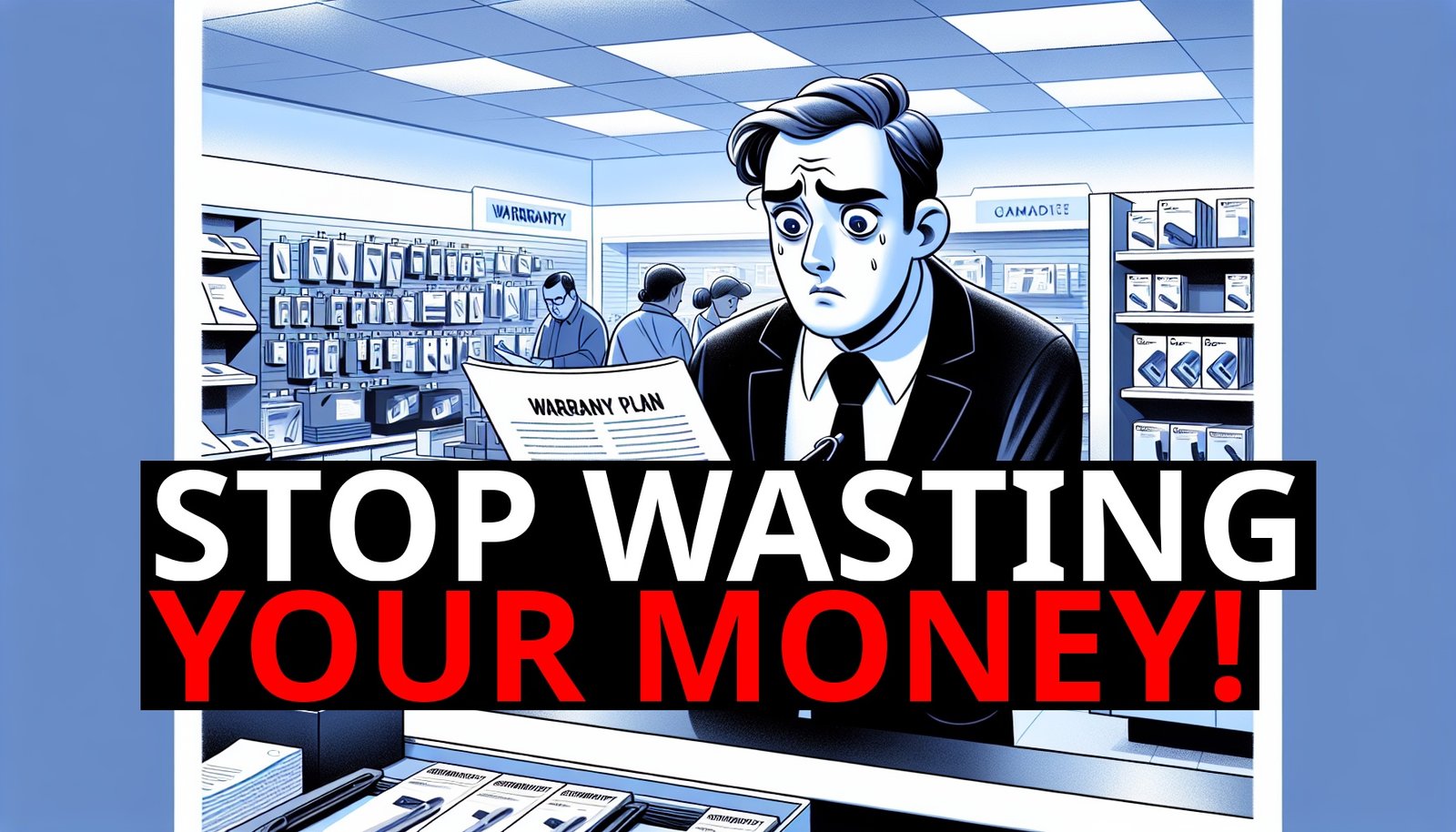You’ve just picked out the latest smartphone, a sleek laptop, or a state-of-the-art appliance. As you’re about to complete your purchase, you’re asked if you want to add an extended warranty “just in case.” It’s a question we’ve all faced, and for many, the answer is often “yes.” But why do we feel compelled to buy these warranties, even when the math doesn’t add up? The answer lies deep in the psychology of protection—a complex mix of loss aversion, fear of regret, and the desire for peace of mind.
Loss Aversion: The Fear Of Losing What We Value
One of the most powerful psychological forces driving the purchase of extended warranties is loss aversion. This concept, popularized by psychologists Daniel Kahneman and Amos Tversky, suggests that people feel the pain of a loss more acutely than the pleasure of a gain. In simple terms, the thought of losing something—like a new gadget breaking down—hurts more than the joy of acquiring it.
When we buy something valuable, the idea of it being damaged or failing unexpectedly triggers a fear response. Retailers capitalize on this by offering extended warranties as a safeguard against loss. Even though the likelihood of needing an expensive repair may be low, the fear of that potential loss can drive us to purchase a warranty, even when it’s not the best financial decision (Credence”>Source“>Source Research).
Fear Of Regret: Avoiding The “What If” Scenarios
Another significant factor is the fear of regret. No one wants to be the person who skips the warranty and then faces a costly repair shortly after the manufacturer’s warranty expires. The fear of having to say, “I should have bought the warranty,” can be powerful enough to override logical thinking.
This fear is amplified by sales tactics that play up worst-case scenarios. When a salesperson mentions how much it could cost to repair or replace the product out of warranty, it triggers anxiety about potential regret. This fear can be so strong that it leads us to buy a warranty simply to avoid the uncomfortable feeling of “what if” (BlueWeave”>Source“>Source Consulting).
The Illusion Of Control: How Warranties Provide Peace Of Mind
Extended warranties also tap into our desire for control. Life is unpredictable, and unexpected expenses can throw a wrench into our carefully planned budgets. By purchasing an extended warranty, we feel like we’re taking control of the unknown, mitigating future risks, and ensuring that we won’t be caught off guard.
This sense of control, however, is often an illusion. The reality is that many extended warranties have exclusions and limitations that reduce their effectiveness. Despite this, the mere act of purchasing a warranty can provide psychological comfort, making us feel more secure—even if the actual protection is limited (Credence”>Source“>Source Research).
Anchoring: How Price Points Influence Our Decisions
Another subtle psychological factor at play is anchoring. When you’re about to spend hundreds or even thousands of dollars on a new product, the cost of an extended warranty may seem relatively small in comparison. This makes the warranty feel like a good deal, even if it’s not.
For example, if you’re buying a $1,000 TV, a $150 warranty might seem like a reasonable investment to protect your purchase. This is because your mind is anchored to the $1,000 price tag, making the warranty seem like a small additional expense. However, when you consider that the chances of needing the warranty are low and the coverage may be limited, the value proposition often falls apart.
Overestimating Risk: Why We Believe We Need Protection
Humans are not great at estimating risk. We tend to overestimate the likelihood of negative events—especially when those events are vividly described by a salesperson or remembered from a past experience. This cognitive bias, known as availability heuristic, leads us to believe that the risk of needing an expensive repair is higher than it actually is.
As a result, we buy extended warranties to protect ourselves from these perceived risks, even though the actual chances of needing such protection are often slim. Retailers know this and use it to their advantage by emphasizing potential risks and downplaying the reliability of the product (BlueWeave”>Source“>Source Consulting).
The Bottom Line: Understanding Your Motivations
Extended warranties are often more about psychology than practicality. By understanding the forces of loss aversion, fear of regret, the illusion of control, anchoring, and overestimating risk, you can make more informed decisions. The next time you’re offered an extended warranty, take a step back and consider whether your decision is being driven by emotion rather than logic.
In many cases, the best protection for your wallet is to skip the warranty and save the money instead. By recognizing the psychological traps at play, you can avoid unnecessary expenses and make smarter financial choices. After all, peace of mind shouldn’t come at the cost of your hard-earned cash.













